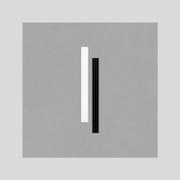Big gaps between albums are rarely a good sign. In fact, the longer the gestation period, the bigger the let-down. There are exceptions (Aerial by Kate Bush springs to mind), but only the devoted and cloth-eared fans of My Bloody Valentine (21 years between Loveless and m b v) would argue that it was worth the wait. The Early Years could be the rare exception. Their second album, the snappily titled II, a decade in the making, is an unqualified triumph.
Ten years have passed since the London/Cheshire experimental rock quartet released their critically acclaimed self-titled debut album on Beggars Banquet (which is about to be re-released on Sonic Cathedral). In the period immediately after their debut hit the shelves, issues between various band members as to what musical direction they should take led to the absence of a follow-up. A couple of singles emerged (also on Sonic Cathedral, the home of II), but a new longplayer seemed as likely as Richie Edwards emerging from Loch Ness on the back of the fabled monster, playing bridge with Lord Lucan.
It’s no secret that the main dissenter was the band’s guitarist Roger Mackin, who wanted to make a “proper” Early Years album, while his bandmates – Dave Malkinson (guitar/vocals), Phil Raines (drums) and Brendan Kersey (bass) – were interested in following a more experimental path, indulging their love of electronics and synthesisers and bands like Cluster. Mackin eventually grew tired of “the endless synth noodling” and went off to play guitar in Sennen. His bandmates formed zer0set, playing sporadic but wonderful improvised live sets. However, at no point was Mackin ostracised from the group. They remained a strong unit, cherishing their friendship over any inter-band tensions and gradually worked out a way of moving forwards that indulged the creative requirements of all parties. Thank Dieter Moebius they did. The results are simply stunning.
Opener ‘Nocturne’ roars out of the blocks like a band who know they need to grab your attention. A snaking analogue synth line insidiously intertwines with tough, tumbling drums reminiscent of how the Chemical Brothers re-appropriated Ringo’s ‘Tomorrow Never Knows’ break for ‘Setting Sun’. The twin guitars of Mackin and Malkinson are incendiary, while Malkinson’s vocal, delivered in the deep baritone favoured by Ian Curtis for Closer, is darkly compelling. It’s a hell of a way to announce your return.
‘Out of Signal’ is a drone-rock love song with a tremendous, searing guitar solo that demands you reach for the tennis racket for some air guitar action. “I’m so glad, I’m so glad, I’ve found you,” croons Malkinson, echoing the thoughts of the listener. ‘For the Fallen’ was the catalyst for the band making a new album – nine stately minutes of widescreen shoegaze, with a fabulously lithe and funky bassline from Kersey, which demonstrates what a fearsomely accomplished studio outfit The Early Years have become. Live they were always a force, but in their years away they have mastered translating that energy into their recordings. The tender ‘Hush’ was originally written as an acoustic lullaby for an unborn child, but together, the band have taken it into another dimension – outer space, where Phil Spector is producing the new Velvet Underground album.
Three of the songs on II have their roots in zer0set – ‘Fluxus’, ‘Clone Theory’ and ‘Near Unison’. The latter two are predominantly electronic tracks, with simple yet heavenly plinky-plonk melodies straight from the Roedelius scrapbook, and understated vocals from Malkinson, channelling Jason Pierce in full strung-out-in-heaven mode. ‘Fluxus’ is incredible – gorgeous, ambient-electronic-pop that recalls Movement-era New Order crossed with To Rococo Roc and produced by Brian Eno.
On the no-nonsense Hookworms-esque krautrocker ‘Do It – Again’, Mackin gets his Jonny Greenwood ‘Creep’ moment – a guitarist he bears a strong musical resemblance to, with his ability to wreak myriad sounds and textures from a six-string with the right boxes of tricks. Around the 2m 45s mark, a riff drops in of such savagery that it actually melted the amp he played it through. ‘Hall of Mirrors’ is a dreamy synth workout, while closer ‘Memory Case’ is a nice counterpoint to the fizzing fury of opener ‘Nocturne’, with laidback guitar licks a la Nick McCabe circa-A Storm in Heaven.
II is nothing short of a modern classic; the sound of a band fusing elements of electronic music with raw psych-rock to devastating effect – something more lauded bands have failed to do. If a fraction of the millions who buy Radiohead albums out of habit took a chance on II, The Early Years would have a fraction of the audience their music deserves. No need to leave it ten years next time, eh lads – you’re on a fucking roll.


